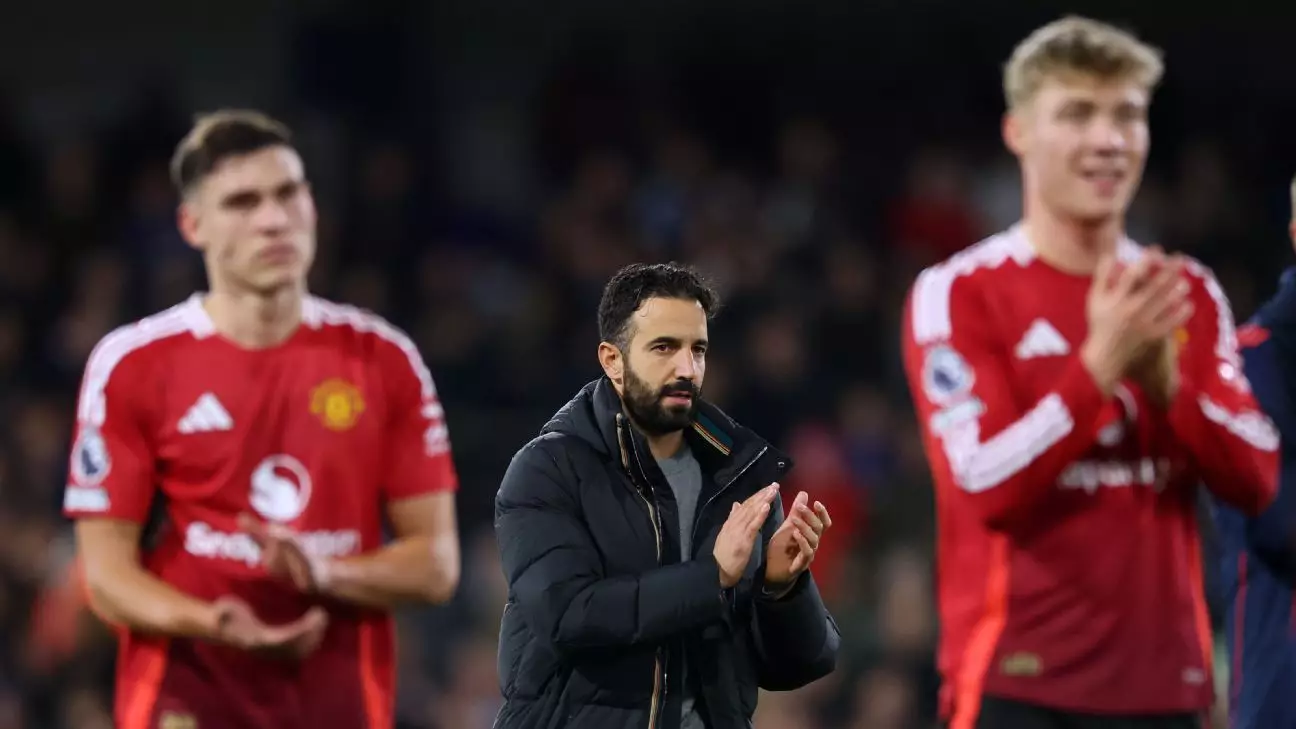The arrival of Rúben Amorim as the head coach of Manchester United signals a critical juncture for the storied football club. Recently, his inaugural match resulted in a frustrating 1-1 draw against Ipswich Town, where despite an early lead courtesy of Marcus Rashford, the team could not secure victory. Amorim’s sentiments reflect a stark reality: the team’s roadmap to success will be fraught with challenges and struggles before any tangible rewards emerge.
The opening minutes at Portman Road showcased the potential within the United squad. Rashford’s early goal created a tantalizing possibility for a win. However, the equalizer from Omari Hutchinson not only neutralized the momentum but also laid bare the vulnerabilities in Amorim’s recent strategies. With less than a week of intensive training, it was perhaps overly ambitious for Amorim to install a new tactical philosophy, particularly a 3-4-2-1 formation, on such short notice. His acknowledgment of the players’ struggle to adapt underscores the difficulties inherent in overhauling a team’s tactical approach, especially mid-season.
Amorim’s explanation reveals a clash between aspiration and reality. He indicated that players are grappling with a mental burden—the result of trying to assimilate a drastically altered game plan in just a few days. The comparison to the regime under Erik ten Hag illuminates the depth of transformation needed but also the friction that arises when new tactics conflict with ingrained habits. The need for a structured approach was evident, yet the clarity in Amorim’s vision took a hit as players seemed to overthink their execution.
The coach’s admission of impending “suffering” speaks volumes about the tough path ahead. For both fans and players, the transition demands patience—a rare commodity in football, especially at a club with the weight of Manchester United’s legacy. While Amorim emphasizes the importance of sticking to principled tactics, he must balance his ideals with the necessity of producing results in a competitive league landscape.
In the sport’s ever-demanding environment, results drive narratives. Amorim’s reliance on goalkeeper André Onana to stave off potential disaster highlights an unsettling trend; while the team strives for an improved structure, resilience in defense becomes paramount. The coach’s plea for pragmatism echoes a fundamental truth in football: effective tactics take time and require buy-in from all players, which can be a tall order when the stakes are high.
Beyond formations, the emphasis on individual player responsibilities marks a significant cultural shift within the squad. Amorim’s directive for Diogo Dalot to adhere more rigidly to his defensive role indicates a push towards not just structural adjustment but positional discipline. This nuanced reallocation of roles speaks to a larger goal: fostering coherence and collaboration on the pitch—a crucial step toward developing effective gameplay.
Amorim’s focus on refining players’ understanding of their roles suggests a methodical approach to player development. This attention to detail may mitigate the confusion currently lingering amongst players grappling with new responsibilities. However, the challenge remains: how can players readily shift their mindset and actions? A comprehensive buy-in from the squad will be necessary, as merely instituting changes does not guarantee success.
As the club navigates upcoming fixtures across various competitions, Amorim’s approach to squad rotation highlights strategic foresight. This will not only aid in managing player fatigue but will also provide opportunities for those not currently in the starting XI to refine their abilities under the new regime. Each match presents a dual purpose—aiming for victory while simultaneously embedding new tactical ideals in the players’ psyche.
Ultimately, Rúben Amorim’s tenure at Manchester United may hinge on his ability to instill confidence amid uncertainty while navigating the pressures of high expectations. A clear vision for the future coupled with a willingness to endure present hardship could transform the Red Devils from a legacy laden with pressure into a team that embraces its potential for growth. Fans will have to exhibit patience, but if Amorim’s methods take root, they may ultimately lead to revitalized performances and a successful trajectory for Manchester United in the long term.
